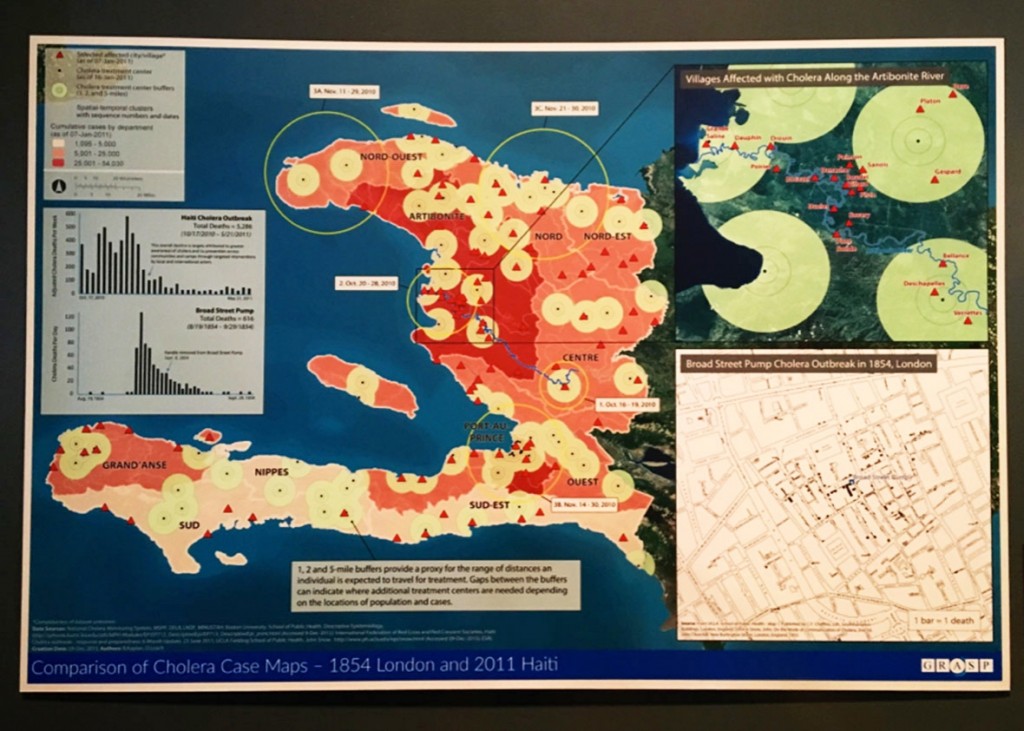The international community was quick to respond in 2010 following the devastating earthquake in Haiti, but the worsening cholera epidemic has received less attention and resources for a variety of reasons. Nearly 10,000 people have died, less than 10% of the estimated mortality of the earthquake, but the disease continues to spread, and interventions have had little impact.
One of the issues may be the root cause: as a natural disaster, the earthquake was an attractive problem to solve, with no villains, only victims and potential heroes. Unlike the earthquake, the cholera epidemic can be traced directly to UN peacekeepers who unknowingly infected others and spread the disease through unhygienic practices. Much like the poisoning of Roma in Kosovo,it’s an embarrassment to international groups, and a long-term problem without clear solutions.
Writing in The Conversation, Rosa Freedman and Nicolas Lemay-Hébert make the argument that the UN is responsible for the ills it has inflicted both in Haiti and in Kosovo, contrasting the bad behavior of individual actors at all of their projects with the even greater impact when the organization itself is at fault. Both in Kosovo and Haiti, the UN is the clear origin point for long-term problems which still affect the health and well-being of citizens, but has only begun to accept responsibility in the face of increasing international pressure.
The issue in Haiti remains unacknowledged, and some writers claim that the US Center for Disease Control is one of many organizations lagging behind in acknowledging fault. From a recent Slate piece, writer Jonathan M. Katz, who has been covering the Haiti cholera epidemic since the beginning, claims that the CDC is obfuscating the role of the UN even in their in-house museum, a research institution which is used by professionals who study these epidemics. Katz points to a number of independent investigations that suggest the UN is actively involved in trying to limit coverage and awareness of their role in spreading cholera.
The other reason may be that the epidemic is now an endemic, so wide-spread that it can not be beaten with simple treatments and prevention. Alex Weppelmann, a research scientist who focuses on these types of pathogens, has written about his conclusion from modelling the disease and its spread for Truthout, ultimately arguing that only mass vaccination can stop the spread of the disease.
What responsibility do you think organizations bear for unintentional consequences of their work? Is it worrying to see how even a well-funded group like the UN can cause such horrible devastation to populations they are trying to help?
Image from Slate Article of CDC cholera map

